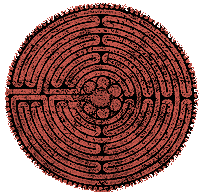 |
L. Eileen Keller, Ph.D. |

|
"If we hope to live not just from moment to moment, but in true consciousness of our existence, then our greatest need and most difficult achievement is to find meaning in our lives." Bruno
Bettelheim, |
Psychotherapy and Psychoanalysis
Everything we learn about ourselves and others is learned within relationships, from our first experiences as a child, growing in complexity when we enter the world of school and social networks, and into adulthood. Our early experiences and relationships have a long life in our minds. Confusion and distress can arise when a current situation stirs up old insecurities and self doubts.
Anxiety about letting down people important to us, family or bosses can stem from early unrealistic expectations. Knowing “who” the internal voices belong to can help us ground ourselves in reality. Depression, self-criticism and anxiety can come from inside. You may feel you have a good career, a good family and yet feel down or angry or sad.
Psychotherapy and psychoanalysis work through the therapeutic relationship, developed in an atmosphere of respect and the space to think. I believe that it takes two minds to think our hardest thoughts. All of us know the feeling of a load being lightened by confiding in a close friend. When friends and family are not enough, an expert can help. Therapy works because of our human need for help from others. Call me so we can talk about whether therapy is the right choice for you.
When is Therapy or Analysis Necessary?
 All
people suffer from distress, pain and frustration at times. Often, individuals
can resolve these difficulties without help. Sometimes difficulties persist, causing
unhappiness and distress at home or work. I believe this may be caused by deeply
rooted fantasies and beliefs that operate outside of awareness, influencing us
to make repeated mistakes and poor decisions that result in ongoing suffering.
Psychoanalytic psychotherapy and psychoanalysis are based on the belief that we
are not transparent to ourselves and that what we do not know or understand about
ourselves can hurt us. When people are in pain, it becomes important to work towards
more transparency so that the factors outside of awareness that are influencing
problematic behaviors, can become better known, allowing for better decision-making.
Psychoanalytic therapy is appropriate for both general distress, such as depression
and anxiety, as well as specific problems, such as eating disorders, chronic self-sabotage,
relationship difficulties, school or work failure, or general dissatisfaction
with the course of one's life.
All
people suffer from distress, pain and frustration at times. Often, individuals
can resolve these difficulties without help. Sometimes difficulties persist, causing
unhappiness and distress at home or work. I believe this may be caused by deeply
rooted fantasies and beliefs that operate outside of awareness, influencing us
to make repeated mistakes and poor decisions that result in ongoing suffering.
Psychoanalytic psychotherapy and psychoanalysis are based on the belief that we
are not transparent to ourselves and that what we do not know or understand about
ourselves can hurt us. When people are in pain, it becomes important to work towards
more transparency so that the factors outside of awareness that are influencing
problematic behaviors, can become better known, allowing for better decision-making.
Psychoanalytic therapy is appropriate for both general distress, such as depression
and anxiety, as well as specific problems, such as eating disorders, chronic self-sabotage,
relationship difficulties, school or work failure, or general dissatisfaction
with the course of one's life.
My Approach
My approach to psychotherapy and psychoanalysis is based on my optimism about our capacity for change. Essential to my practice is the belief that we are not transparent to ourselves, that each individual is unique, that the past influences the present -- often in ways we do not understand -- and that our minds are built up in the context of our important relationships. It is this, especially, that supports my belief that change, when our efforts to accomplish it by ourselves are unsuccessful, can occur by establishing a relationship with a psychoanalyst that will offer a unique opportunity to see and understand the individual's unique constellation of inner relationships through the close observation of the developing relationship with the analyst. The goal of treatment is to clear away the obstacles to self-knowledge and open the path to self-fulfillment.



